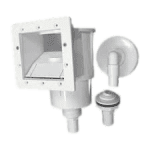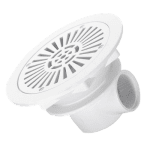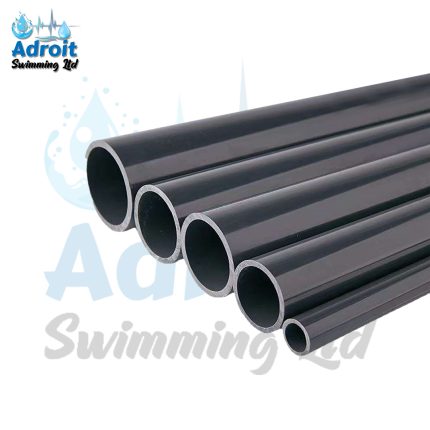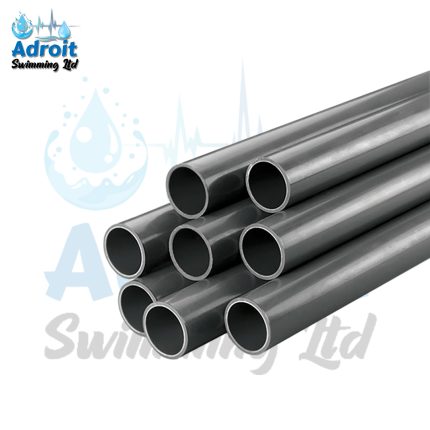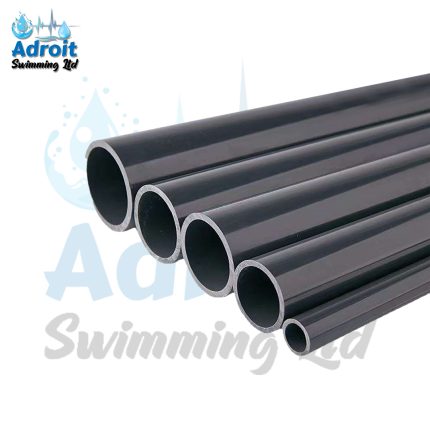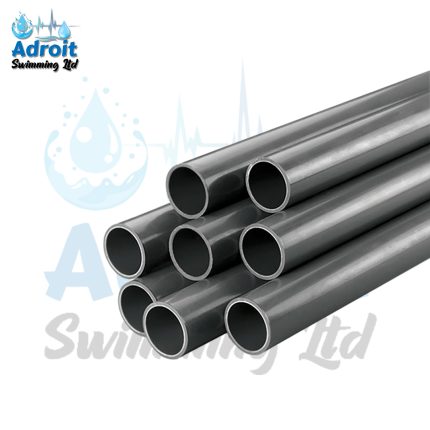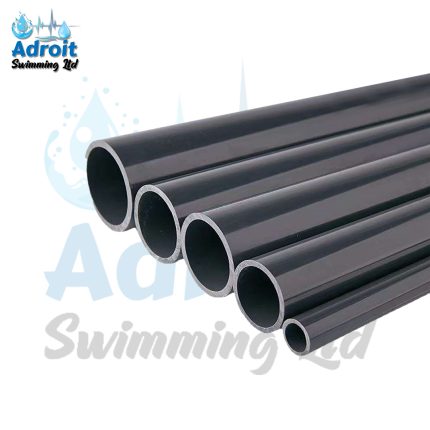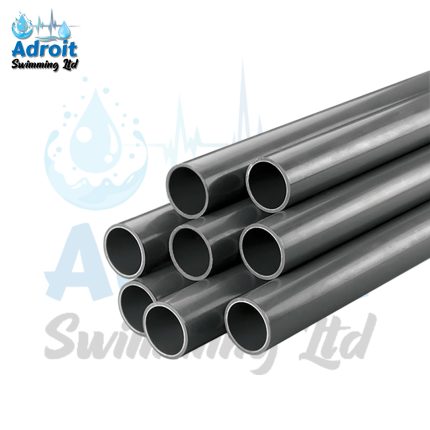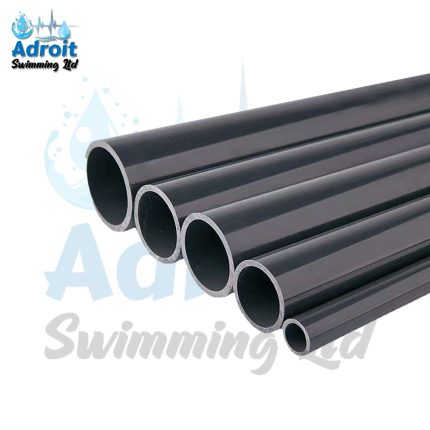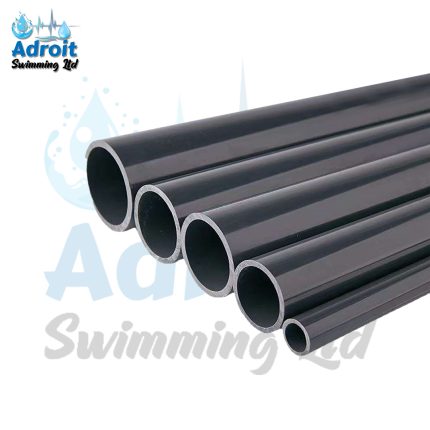Pipe
Pipes for swimming pools are crucial components used in the plumbing system to circulate water efficiently and ensure proper filtration, heating, and drainage. Made from durable materials like PVC or ABS, these pipes are designed to withstand exposure to water and pool chemicals. They come in various sizes and configurations, allowing for flexible installation based on the pool’s design and requirements. Properly sized and installed pipes help maintain optimal water flow, preventing clogs and ensuring effective filtration. Whether used for connecting pumps, filters, heaters, or main drains, quality pipes are essential for the overall functionality and longevity of a swimming pool system.
Swimming Pool PVC Pipe: A Critical Component for Pool Infrastructure
Swimming pool PVC pipes are essential elements in the construction and maintenance of swimming pool systems. These pipes are made from polyvinyl chloride (PVC), a durable and lightweight plastic known for its resistance to corrosion, chemicals, and UV rays. PVC pipes are widely used in pool plumbing systems for various applications, including water circulation, drainage, and filtration. This article explores the purpose, types, features, benefits, installation, and maintenance of swimming pool PVC pipes.Purpose of Swimming Pool PVC Pipes
The primary purpose of swimming pool PVC pipes is to transport water efficiently and effectively within the pool system. They play several key roles:- Water Circulation: PVC pipes are integral to the pool’s circulation system, connecting the pool to the pump, filter, and return jets. They help maintain a continuous flow of water, ensuring that chemicals and temperature are evenly distributed.
- Filtration: PVC pipes connect the pool to the filtration system, allowing dirty water to flow from the pool into the filter, where it is cleaned before returning to the pool. This process is vital for maintaining clear and healthy water.
- Drainage: PVC pipes are also used for draining water from the pool during maintenance or winterization. They facilitate the efficient removal of water, preventing damage to the pool structure.
- Water Features: Many pools incorporate additional features, such as fountains or waterfalls, that require PVC piping to transport water to these decorative elements.
Types of Swimming Pool PVC Pipes
- Schedule 40 PVC Pipes: This is the most common type used in swimming pools. Schedule 40 pipes have a standard thickness that provides a good balance of strength and weight, making them suitable for most residential pool applications.
- Schedule 80 PVC Pipes: These pipes are thicker and stronger than Schedule 40 pipes, making them ideal for commercial pools or situations where higher pressure ratings are required. They are often used in high-flow systems.
- Flexible PVC Pipe: Unlike rigid PVC pipes, flexible PVC is more adaptable and can bend without breaking. This type is often used for spa connections or in installations where space is limited or irregularly shaped.
- PVC Fittings and Accessories: In addition to the pipes themselves, various fittings, elbows, tees, and valves are made from PVC to facilitate connections and routing of the plumbing system.
Key Features of Swimming Pool PVC Pipes
- Durability: PVC pipes are resistant to corrosion, rust, and decay, ensuring a long lifespan even when exposed to harsh chemicals and environmental conditions.
- Chemical Resistance: PVC is highly resistant to the chlorine and other chemicals used in swimming pools, making it an ideal choice for plumbing systems.
- Lightweight: PVC pipes are lightweight compared to metal options, making them easier to handle and install. This feature also reduces the overall structural load on the pool.
- Smooth Interior: The smooth interior surface of PVC pipes minimizes friction and allows for efficient water flow, reducing energy costs associated with pumping.
- Easy Installation: PVC pipes can be easily cut and joined using solvent cement, simplifying the installation process and reducing labor costs.
Benefits of Swimming Pool PVC Pipes
- Cost-Effective: PVC pipes are typically more affordable than alternative materials, such as metal or fiberglass, making them an economical choice for pool construction and repairs.
- Low Maintenance: Due to their durability and resistance to corrosion, PVC pipes require minimal maintenance over their lifespan. Regular inspections and occasional cleaning are usually sufficient.
- Versatility: PVC pipes can be used in various applications, including water circulation, drainage, and feature installation, making them a versatile choice for pool builders and owners.
- Eco-Friendly: PVC is recyclable and can be repurposed at the end of its life, reducing environmental impact compared to some other materials.
- Reduced Energy Costs: The efficiency of PVC piping systems helps reduce energy consumption, as less energy is required to pump water through smooth, well-designed pipes.
Installation of Swimming Pool PVC Pipes
- Planning the Layout: Before installation, plan the layout of the piping system, considering the pool’s design and the locations of the pump, filter, and return jets. Accurate planning ensures efficient water flow.
- Cutting the Pipes: Use a pipe cutter or saw to cut the PVC pipes to the desired lengths, ensuring that the cuts are straight and clean.
- Joining the Pipes: Apply PVC primer to the ends of the pipes and the inside of the fittings, followed by PVC cement. Quickly push the pieces together and hold them for a few seconds to ensure a secure bond.
- Securing the System: Use straps or hangers to secure the pipes in place and prevent movement. Ensure that the pipes are properly sloped for drainage where necessary.
- Testing the System: Once the installation is complete, test the system for leaks and ensure that water flows correctly through the pipes. Check all joints and connections for proper sealing.
Maintenance of Swimming Pool PVC Pipes
- Regular Inspections: Periodically inspect the piping system for signs of wear, damage, or leaks. Look for cracks, corrosion, or loose fittings that may need attention.
- Cleaning: Occasionally clean the exterior of the pipes to remove dirt and debris that may accumulate. This can help prevent blockages and maintain the integrity of the system.
- Monitor Water Chemistry: Maintain proper water chemistry to reduce the risk of damage to the pipes from corrosive chemicals. Regularly test and balance pH, chlorine, and alkalinity levels.
- Winterization: In colder climates, winterize the pool and piping system to prevent freezing, which can cause pipes to crack. Drain water from the pipes and use insulating materials where necessary.
- Professional Servicing: For major repairs or issues, consider hiring a professional pool technician to assess and address problems with the PVC piping system.









